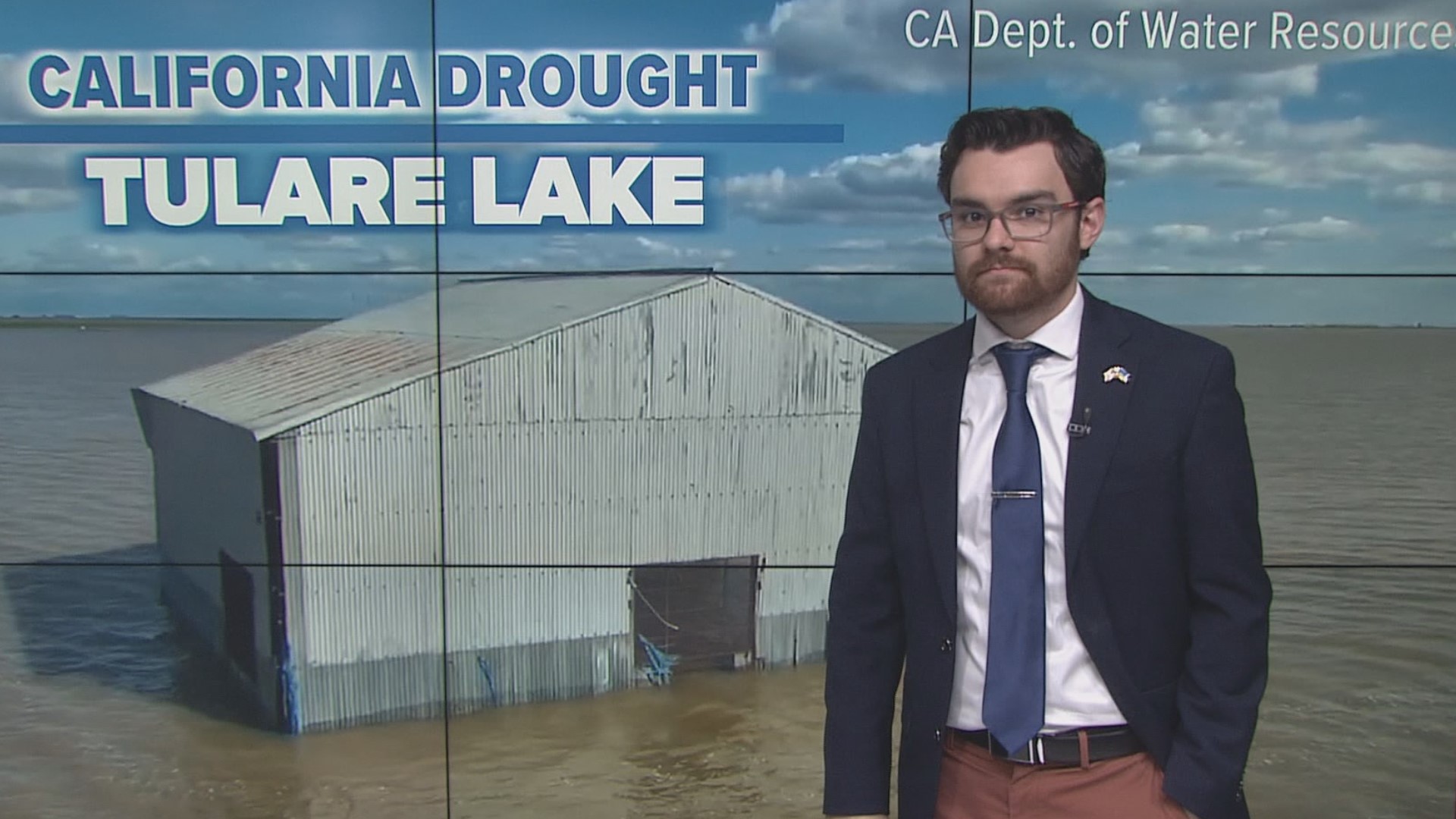SACRAMENTO, Calif. — California is finally beginning to feel like spring after a record cold march.
However, the record snowpack that has helped bust the drought will likely cause problems in the spring and summer in areas that have already been plagued by flooding this winter.
"Yes, we are concerned. But we'll just have to see, since the rains have stopped over the last week and a half, two weeks, we have been able to lower the reservoirs significantly, so that there is quite a bit of buffer now," said Matt Watkins, of the Tulare County Farm Bureau.
The Tulare Lake Basin includes the cities of Fresno, Bakersfield and Visalia along with some of the most productive agricultural land in the nation. The southern Sierra has three years worth of snow waiting to melt and run off into the basin.
For now, it does look like a slow to moderate melt is possible. No major warmups are on the horizon, which is good news for those who live and make a living in the Central Valley.
"We're hoping that yeah, it's a slow melt. We control it, we utilize it the most we can. And you know, it becomes an opportunity to replenish our groundwater and it really turns into a positive," said Watkins.
The Tulare Lake basin is home to Tulare Lake. Tulare Lake was once the largest freshwater lake west of the Mississippi River before dams, levees and canal systems diverted the headwaters. The lakebed has not filled since 1997.
"There's going to be a significant amount of water that ends up in the Tulare Lake," said Watkins. "How long that lake lasts, who knows could be a year, could be two years. But there's, anticipation that we'll have a new lake in California for a couple of years."
This would do some damage to the agriculture industry down in the southern Central Valley due to thousands of acres being flooded for indeterminant amount of time. However, Watkins expects the water infrastructure to do its job if the state can avoid any major heatwaves. He even believes some good will come out of this.
"I think, if the snowmelt comes down slow enough, and we can control the water, I think in Tulare County, it should be OK. I mean, we should be able to keep trying to keep most of the water in our levees, tried to control it, try to use it as much as we can."
WATCH ALSO:



















